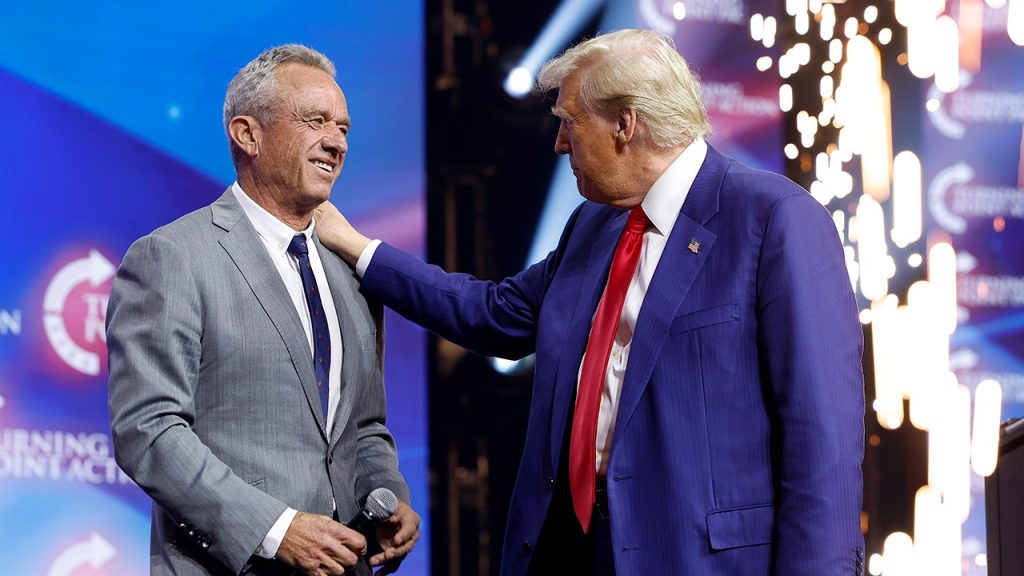Robert F. Kennedy Jr.’s nomination to head the U.S. Department of Health and Human Services (HHS) under a potential second Trump administration has set the stage for a critical series of meetings with senators on Capitol Hill. Kennedy, a controversial figure due to his stance on vaccines and abortion, will face intense scrutiny from lawmakers on both sides of the aisle as he seeks to gain their support for his confirmation. His four-day visit to Washington D.C. before the Christmas recess is crucial for addressing concerns and building momentum for his potential leadership of one of the nation’s most vital agencies.
Kennedy’s views on vaccines have drawn considerable attention and sparked apprehension among lawmakers concerned about public health. While he has described himself as “pro-vaccine” and committed to not taking away vaccines that are working for individuals, his previous skepticism and criticism of vaccine safety have raised red flags. Senators like Mike Rounds (R-SD) have publicly expressed their desire to maintain robust vaccine programs and will likely press Kennedy on his plans for ensuring the continued efficacy and safety of vaccinations. These meetings represent an opportunity for Kennedy to clarify his position, reassure lawmakers, and demonstrate his commitment to evidence-based vaccine policies.
The issue of abortion also looms large over Kennedy’s nomination. As a long-time Democrat-turned-independent, his stance on abortion differs from the traditionally conservative views of many Republicans. Senators with strong pro-life convictions, such as James Lankford (R-OK), have expressed their intention to question Kennedy closely about his position on this sensitive issue. Navigating these discussions will be a delicate balancing act for Kennedy as he seeks to gain bipartisan support without alienating key constituencies.
Despite the controversies, Kennedy has garnered support from some Republican senators, including Markwayne Mullin (R-OK), a close ally of President Trump. Mullin’s endorsement, based on prior conversations with Kennedy, signals a potential path to confirmation within the Republican caucus. Kennedy’s focus on tightening food regulations and promoting a “healthy America” has also resonated with some lawmakers, offering a potential area of common ground and bipartisan appeal. This focus on food safety could attract support from Democrats concerned about public health and nutrition, potentially broadening his base of support.
Kennedy’s meetings on Capitol Hill will be crucial for shaping perceptions and building the necessary alliances for confirmation. He faces the challenge of addressing concerns about his past statements on vaccines and abortion while highlighting his commitment to public health and his vision for the HHS. The success of these meetings could significantly influence the Senate’s willingness to confirm him, determining whether he has the political capital to lead the agency.
The outcome of Kennedy’s meetings will not only impact his own confirmation prospects but also shape the future direction of health policy under a potential second Trump term. His ability to persuade skeptical senators and build a coalition of support will be a key test of his political acumen and his capacity to lead the HHS. These meetings represent a pivotal moment for Kennedy, the Senate, and the future of American health policy.

